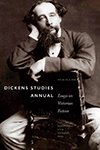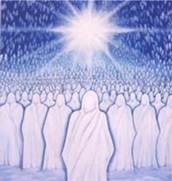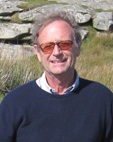Of course, the word "proof" must be used advisedly. It's never used in formal science, as I understand (except for "mathematical proofs"), although I tend to use it for the general public, in defiance and to stir up controversy. I make it clear, however, that I consider "proof" to be relative, on a continuum. Mathew Franklin Whittier didn't consider poetry to be his forte, even though "The Raven," which was actually written by himself, ended up being one of the most famous poems of 19th-century America (even more so than his famous brother's poem, "Snow-Bound"). Admittedly, that's partly because Edgar Allan Poe, who stole it, was a kind of literary rock star of the period (legitimate or self-created, as the case may be). This would be somewhat analogous to the song "Country Roads," which was written by Bill Danoff and Taffy Nivert, but made famous by John Denver, except that Denver paid for the song and acknowledged its original authorship, whereas Poe stole "The Raven."
Mathew wrote primarily in one style--what you see in "The Raven" and "Lady Geraldine's Courtship"--a style which I *think* was used mostly for the religious poetry of the day. I have yet to find a scholarly term for it. Today, if pressed, I *can* write in that style, though I tend to use it privately rather than publicly. When I was younger, I suffered from severe "writer's block," but after I discovered my past life as MFW, that entirely disappeared--*except* for poetry.
Academically speaking, I'm expressing my opinion on the opinion that has been put forth on plagiarism. Here, I'm only addressing your claim that Dickens plagiarized the Christmas Carol.
I believe that you may have point. However, if it's a case of plagiarism, it seems that, perhaps, Dickens did not plagiarize from an obscure, and unfounded author, MFW, the brother of the well known poet, John Whittier. There is no academic history anywhere found to substantiate any credit due to Matthew Whittier, nor to his first wife, for being the original authors of A Christmas Carol. But interesting enough, the plot and theme, or rather, the moral of the story within the classic accredited to Charles Dickens is one that goes back to Jesus Christ. It appears that there are those that see a very close similarity to one of the stories told to us by a great and well established story teller. Therefore, I tend to also agree with those that give credit to Jesus's story telling for inspiring Dickens to take something given to us by Jesus, and then embellishing the theme to the point of spinning and weaving a much longer and modernly adorned tale to Dickens' own times and environment.
I'm going to post the link, and some of the contents of this interesting opinion that Dickens plagiarized from Jesus, to give us one of his many classic stories. And I would be interested to see how Matthew Whittier would have responded if indeed he was the original source of writing A Christmas Carol, as claimed by a future reincarnation of himself. Did Matthew Whittier plagiarize from Luke 16:19-31?
http://theconversation.com/charles-dickens-the-man-who-invented-christmas-plagiarized-jesus-87936
Some Dickens scholars believe the author’s 1843 visit to sooty Manchester, or to “the black streets of London,” (as he described them in a letter to a friend) influenced him. It may be that the fable was a moral reminder from Dickens to himself, as he teetered on financial ruin. This is the theory proposed in
the book by Les Standiford on which this year’s movie is based.
Did Dickens in fact invent Christmas, as we know it? Hollywood may think so, but others, like David Parker in his
Christmas and Charles Dickens vehemently disagree.
Whatever your opinion, the prevailing wisdom is that
A Christmas Carol isn’t particularly religious. As a professor of biblical studies at Concordia University and also a Lutheran minister, I have a different reading.
It’s true that the celebration of the season which Scrooge discovers has much more to do with generosity, family gatherings and large cooked birds, than the Nativity. But maybe those seeking explicit scriptural references in Dickens’ story are underestimating the Victorian novelist’s skill — and his audacity. Perhaps
A Christmas Carol contains an alternative to the Bible rather than a simple borrowing from it. And perhaps that’s the point.
Jesus was a master story-teller
Jesus, by all accounts another master story-teller,
told a parable that, stripped of Dickens’ English waistcoats, ledgers, fog and shutters, could almost be a mirror to
A Christmas Carol:
“There once was a rich man. A poor man named Lazarus lived at his gate, with nothing to eat. Lazarus died and was carried by the angels to Abraham’s side. The rich man also died.”
There follows, in Jesus’ tale, an exchange between the rich man, who is in torment, and Abraham, who acts as the guardian of paradise. It’s hard not to think of the innocent Lazarus as a precursor to Tiny Tim.
First the rich man asks for his own relief from hell. When that’s denied, he pleads: “I beg you, send Lazarus to my father’s house. I have five brothers. Let him warn them so they don’t come to this place of agony.” Abraham replies: “They have Moses and the prophets. They must listen to them.”
“No, Father Abraham!” cries the rich man, “But if someone from the dead goes to them, they will change”
(Luke 16:19-31).
One can almost hear the chains of Morley’s ghost rattling. What would have happened if Father Abraham had said yes? Something very like a first-century version of
A Christmas Carol.
Let’s not forget that the people of our western English-speaking past, especially artists and writers, were imbued with Biblical references and ideas. As
Northrop Frye, among others, has argued, they lived and created in a world shaped by the rhythms, narratives, images and conceptions (or misconceptions) of the King James Bible.
Was Dickens familiar with Christian scriptures? All evidence points to the fact that he was more acquainted than most. Despite an antipathy to organized religion, from 1846 to 1849 Dickens wrote a short biography of Jesus for his children, titled
The Life of our Lord.




